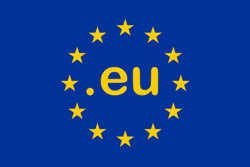ROUNDUP: Paris, Berlin bolt the doors to Western Balkans
 Hluboka Castle, Czech Republic - Turkey and seven Western Balkan nations knocked on the European Union's door Saturday asking to be let, but found it bolted by France and Germany.
Hluboka Castle, Czech Republic - Turkey and seven Western Balkan nations knocked on the European Union's door Saturday asking to be let, but found it bolted by France and Germany.
"There will be no enlargement if there is no Lisbon Treaty," said French Foreign Minister Bernard Kouchner during an informal meeting of EU foreign ministers in the Czech Republic.
That position was echoed by German foreign ministry officials, who said: "We will not be in a position to accept new member states in the EU without the Lisbon Treaty."
The Lisbon Treaty is designed to improve the bloc's decision- making process, taking into account its 2004 and 2007 "Big Bang" enlargements, which saw a total of 12 new countries join the EU.
However, its enactment has been stalled by an Irish no vote in a referendum last year and by this week's collapse of the Czech government before it was able to complete the ratification process.
Ireland is now expected to hold a fresh referendum in October, while acting Czech Foreign Minister Karel Schwarzenberg said he was confident that the Czech Senate would ratify the treaty "in due time."
Saturday's comments by top diplomats from France and Germany, while not new, were all the more significant as they came during an EU meeting with ministers from seven aspiring members from the Western Balkans - Albania, Croatia, Bosnia-Herzegovina, Macedonia, Montenegro, Serbia and Kosovo - and officials from Turkey.
German officials said their country's opposition to further enlargement in the absence of the Lisbon Treaty also applied to Croatia, which is hoping to end its membership talks this year, and become the EU's 28th member state soon afterwards.
However, this position was not shared by the EU's enlargement commissioner, Olli Rehn.
While acknowledging the need to have the Lisbon Treaty approved so as to make the EU "more effective," Rehn said enlargement should not be made "a scapegoat for other ills (that) it is not responsible for."
Rehn has been spending most of his time trying to advance the case for the Western Balkans' EU membership, mediating for instance in a border dispute between Croatia and EU member Slovenia.
Speaking at the meeting in southern Bohemia, Slovenian Foreign Minister Samuel Zbogar said he could see "movement" on the EU front, hailing the mediating role being played by Rehn.
Earlier Saturday, Serbian Foreign Minister Vuk Jeremic had urged EU countries to welcome his country with open arms, warning that "things will (otherwise) become very complicated in the Western Balkans.
"I very much hope that we will confirm that the doors of Europe are open ... and that the peoples of the Western Balkans can look forward to their European future," Jeremic said.
In a statement, the Czech presidency of the EU said participants at the meeting in Bohemia had "reconfirmed the European perspective of the Western Balkans."
"We need to continue our policy of stabilization, whose other name is enlargement," Rehn said.
The Czech presidency also vowed to show solidarity with the region in the face of the current economic crisis.
Apart from the Lisbon Treaty, candidate countries face serious hurdles, most of them of their own making.
For instance Macedonia, which was granted candidacy status back in 2005, has been unable to advance the membership process because of a long-standing dispute with neighbouring Greece over its name.
Albania, Bosnia-Herzegovina and Montenegro, meanwhile, all need to approve reforms designed to meet EU standards.
And the former Serbian province of Kosovo faces additional opposition from EU countries like Spain, which do not even recognize it as an independent state.
At the meeting of EU foreign ministers in Hluboka Castle, a 13th century mansion in southern Bohemia that once belonged to Minister Schwarzenberg's family, British Foreign Minister David Miliband insisted that "the door to the EU has not been closed."
Lithuania's Vygaudas Usackas, however, called on all candidate countries "to be very patient." (dpa)